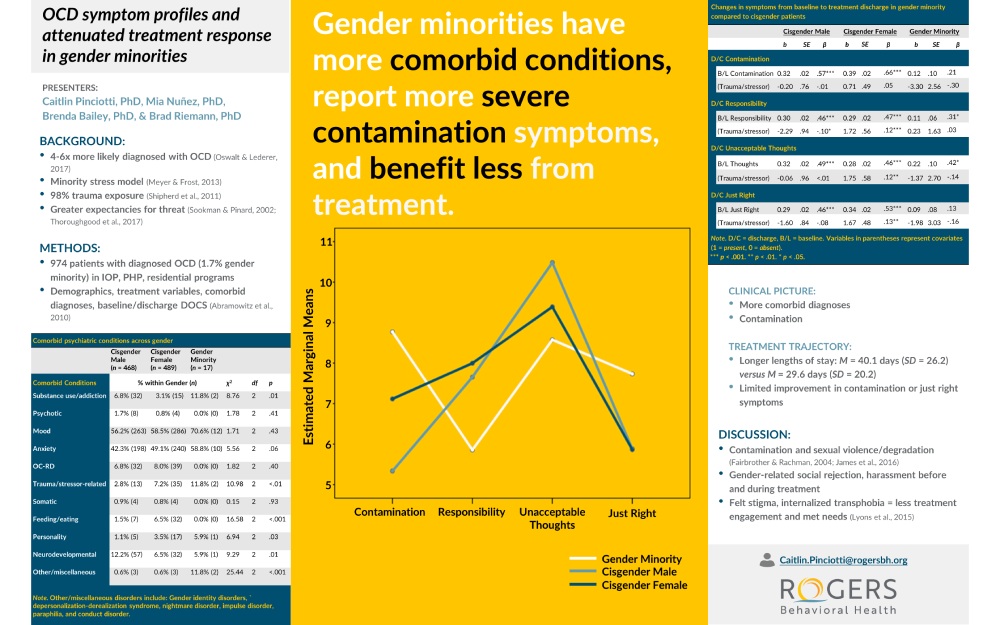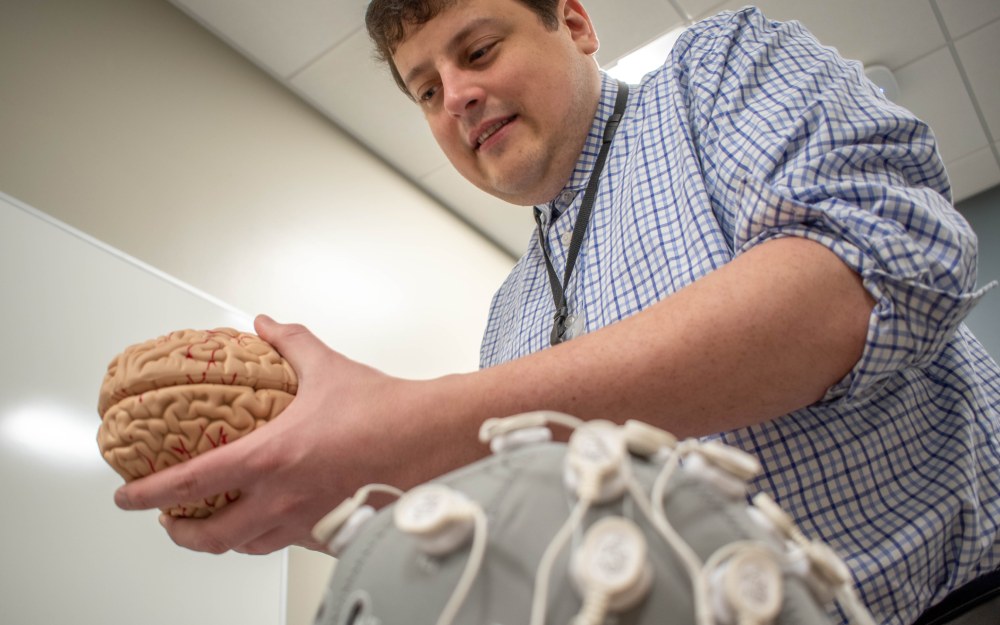
Rogers presents gender minorities research in OCD treatment at annual conference
08/25/20 09:48:am
Her presentation, “OCD symptom profiles and attenuated treatment response in gender minorities” looked at comorbid psychiatric diagnoses, differences in OCD symptoms, and treatment trajectory in transgender patients with OCD compared to cisgender (those whose sex assigned at birth is the same as their gender identity) patients with OCD.
According to Mental Health America, 4.5% of the American population identify as lesbian, gay, or bisexual, and 39% of these people reported having a mental illness in the last year. Among the community, transgender and bisexual people have the highest rates of mental health concerns and younger members of the community have higher rates of mental illness among the age groups.
Dr. Pinciotti also recently provided training for Rogers staff members in Oconomowoc, Brown Deer, West Allis, Twin Cities, San Diego, and Walnut Creek on providing identity-affirming care for LGBTQ+ patients. She says that she was pleased to see how much of an interest there was to attend the virtual training.
“This speaks not only to how committed our staff is to providing affirming care to our LGBTQ-identified patients, but also to the immense need for continued dialogue at Rogers about these important issues,” she says.
“In one of the talks, an attendee raised an excellent question regarding the way in which hierarchies are developed for folks with gender- or sexual orientation-themed OCD, and how some of the exposures we develop and assign may be inadvertently reinforcing the very stereotypes that underly the discrimination and violence LGBTQ folks face on a daily basis. The subsequent discussion of this point was very impactful for myself and several other colleagues who have continued to ask about ways to improve our treatment of this particular OCD presentation so that we are not unintentionally doing harm to a vulnerable population.”
Rogers is committed to ensuring minority populations, such as the LGBTQ+ community, are respected and can receive treatment in a way that affirms their gender and sexual identity. While work still needs to be done, the Equity and LGBTQ+ work groups are pushing us forward and helping to ensure that diversity among patients and Rogers’ employees is recognized, valued, and celebrated.
One recent change is that it is now strongly recommended that all Rogers team members include their pronouns in their email signature. The Equity and LGBTQ+ workgroups and leadership at Rogers both agree that further research into how to best provide inclusive care at Rogers is an essential step toward equity.
“It’s important that minorities have more equity and access in the mental health field," says Jerry Halverson, MD, chief medical officer. "Because once they do, we’ll be able to look at questions like ‘how do specific sub populations do with this kind of treatment?’ We have a very unique opportunity to do that because of the rich data that we collect during and after treatment.”





